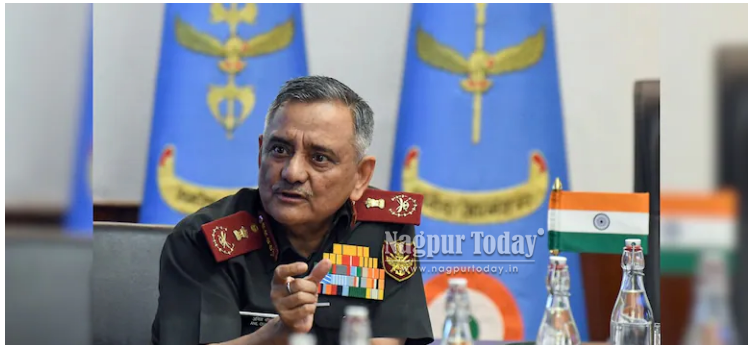
New Delhi: General Anil Chauhan, Chief of Defence Staff (CDS), has become the first Indian official to confirm that the Indian Air Force lost some fighter jets in clashes with Pakistan on May 7. In an interview to Bloomberg TV in Singapore, he however declined to specify the exact number of fighter jets India lost that night.
“What is important is that — not the jet being down, but why they were being down,” General Chauhan is quoted as having said in the interview on Saturday, May 30, while he was attending the Shangri-La Dialogue in Singapore.
“Why they were down, what mistakes were made — that are important. Numbers are not important,” he said, when asked about the fighter jets. He also called Pakistan’s claims that it shot down six Indian warplanes that night as “absolutely incorrect”.
In its official media briefings during and after the four-day conflict, foreign secretary Vikram Misri and Air Marshal A.K. Bharti, Director-General of Air Operations, had not denied the losses.
Bharti had said that “we are in a combat situation and losses are a part of combat”, but declined to divulge any details. General Chauhan becomes the first official to confirm the losses.
The CDS underscored that India had learnt the lessons from those losses and implemented them during the conflict.
“The good part is that we are able to understand the tactical mistake which we made, remedy it, rectify it and then implement it again after two days and flew all our jets again, targeting at long range,” he is quoted as having told Bloomberg TV.
Earlier this month, Pakistani Prime Minister Shehbaz Sharif had claimed that his country had shot down six Indian fighter jets, including three French Rafales, on the first night of the conflict.
Many foreign publications, including the CNN, BBC, Le Monde and France 24, have reported on the loss of Rafale fighter jets, but the total number of fighters lost by the Indian Air Force that night has not been confirmed yet.
The clash was the worst between the nuclear-armed neighbours in half a century, with both sides trading air, drone and missile strikes, as well as artillery and small arms fire along their shared border. It was triggered by a gruesome attack in Jammu and Kashmir on April 22, which saw terrorists kill 26 civilians in what India called an act of terrorism orchestrated by Pakistan. Leaders in Islamabad denied involvement.
General Chauhan declined to comment on President Donald Trump’s claim that the US helped to avert a nuclear war, but said it was “far-fetched” to suggest either side was close to using atomic weapons.
“I personally feel that there is a lot of space between conduct of conventional operations and the nuclear threshold,” General Chauhan said. Channels of communication with Pakistan “were always open” to control the situation, he added, noting that on the escalation ladder, there were “more sub-ladders which can be exploited for settling out our issues” without needing to resort to nuclear weapons.
‘Red Lines’
General Chauhan also downplayed Pakistan’s claims about the effectiveness of weaponry deployed from China and other countries, saying they “didn’t work.” A research group under India’s Defence Ministry said this month that China provided Pakistan with air defense and satellite support during its clash with India.
“We were able to do precision strikes on heavily air-defended airfields of Pakistan deep 300 kilometres inside, with the precision of a meter,” the Indian military chief said.
India and Pakistan have sent delegations to global capitals to influence international perception of the conflict. General Chauhan said the cessation of hostilities is holding, and will depend on Pakistan’s actions in the future.
“We have laid clear red lines,” he said.














